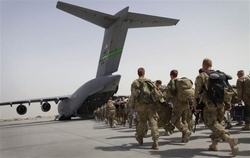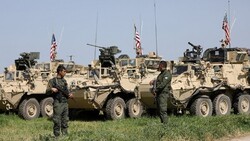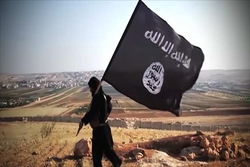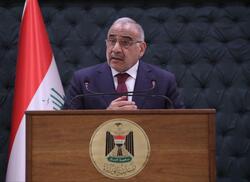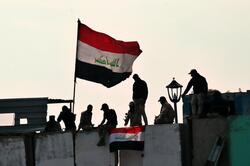ISIS is bigger now than when it first formed, and Trump's conflict with Iran could give it a boost
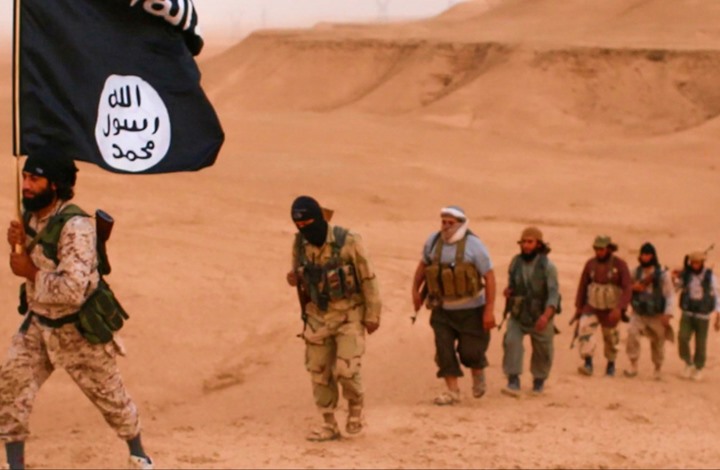
Shafaq News/ Tensions between the US and Iran could benefit ISIS amid growing signs the terror group still poses a significant threat in the Middle East despite the death of its leader, Abu Bakr al-Baghdadi, and the loss of its self-declared caliphate,According to the American Insider Website.
In the past, President Donald Trump has prematurely declared ISIS was defeated, which in December led him to be publicly called out to his face by French President Emmanuel Macron.
The reality is that ISIS currently has more fighters than it did when it founded its caliphate in 2014, as well as million of dollars at its disposal, according to recent reports.
Masrour Barzani, the prime minister of Iraqi Kurdistan, in a recent interview told the Atlantic, "ISIS is still very much intact."
"Yes, they have lost much of their leadership. They have lost many of their capable men. But they've also managed to gain more experience and to recruit more people around them. So they should not be taken lightly," Barzani added.
Barzani, who became prime minister last summer, played a central role in the fight against ISIS. He coordinated closely with the US as the top security official in the Iraq's Kurdish region. He told the Atlantic ISIS still has roughly 20,000 fighters across Iraq and Syria. Last summer, the Pentagon reported that ISIS had approximately 14,000 to 18,000 militants in the region. Comparatively, when ISIS in 2014 declared a caliphate after taking over a large swath of territory across Iraq and Syria, it was initially estimated to have roughly 10,000 fighters.
Though Trump has repeatedly touted the death of Baghdadi, who blew himself up during a raid the president ordered in October, a recent report from the Defense Department's inspector general said that it's done little to disrupt the terror group's command structure or operations.
And a recent UN report said ISIS still has $100 million in reserves.
Trump's tensions with Iran are distracting from ISIS
Meanwhile, Trump's ongoing conflict with Iran has taken attention away from ISIS. In early January, Trump ordered a drone strike that killed Iran's top military leader, Qassem Soleimani, pushing Washington and Tehran to the brink of war.
Tensions were already high at the time of the strike, with a series of skirmishes in the Persian Gulf region last summer, among other incidents.
The Soleimani strike led to an Iranian missile attack on US forces in Iraq, leaving over 100 US service members with mild traumatic brain injuries, which Trump has downplayed. Though the US and Iran moved away from a broader conflict last month, tensions persist.
The US briefly suspended anti-ISIS operations in the region after the Soleimani strike, which also led Iraq's parliament to vote to expel all US forces from the country. Subsequently, there was a mass protest in Baghdad against the US military's ongoing presence in Iraq.
"This confrontation definitely will have a negative effect on the fight against terrorism and ISIS, which should be the priority for all of us," Barzani told the Atlantic of Trump's conflict with Iran.
'ISIS continues to exist in Iraq and Syria'
Terrorism analysts say ISIS does indeed continue to pose a threat, but caution that it's largely regional in nature. In other words, they say ISIS is unlikely to be attacking the US homeland anytime soon.
"ISIS continues to exist in Iraq and Syria, and its long history of resilience and resurgence after supposed defeats including the much-heralded 'surge' suggests that it could well — given the right circumstances — pose an even greater threat in Iraq and Syria, particularly if tensions with Iran prevent coordinated international efforts to suppress it," David Sterman, a senior policy analyst for New America, told Insider.
"However, it is essential to acknowledge that even when the United States began its counter-ISIS war, and at ISIS' peak territorial holdings, the group did not demonstrate a clear capability to strike the United States homeland," Sterman added.
Sterman went on to say that the US needs to engage in a "real debate" about its "regional security interests and ISIS's threat to them, and that debate should neither be clouded by an overly optimistic view that the US can defeat ISIS or assumed but unproven equations of threats in Iraq and Syria with threats to the homeland."
